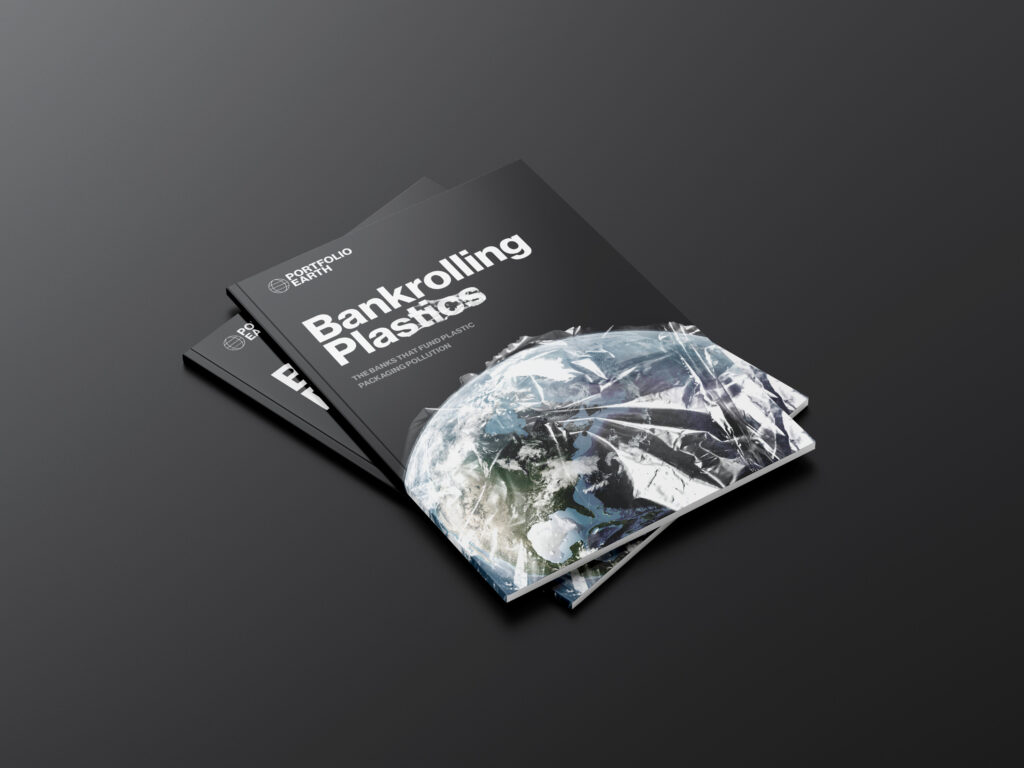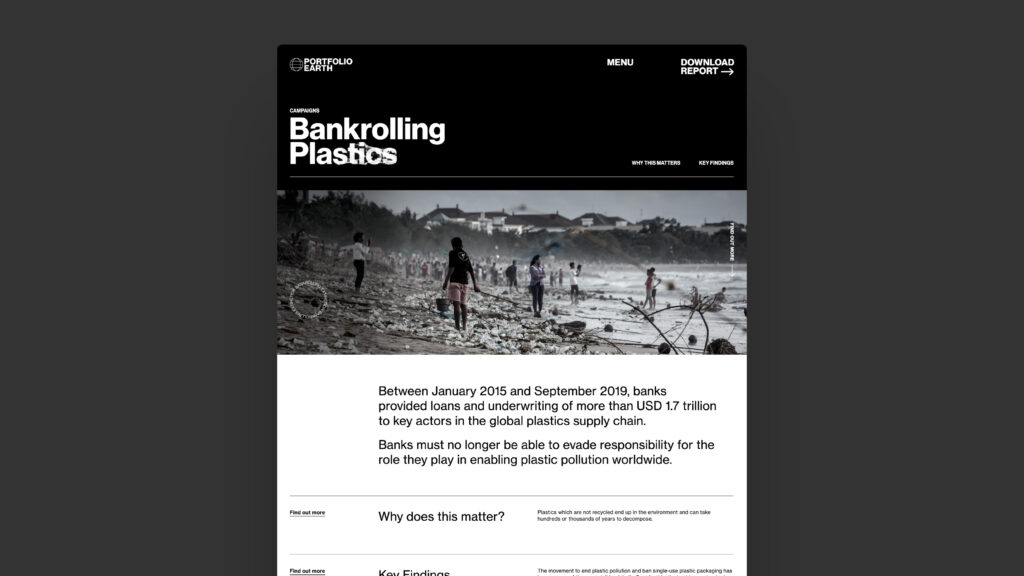A recent study by the Vrije Universiteit Amsterdam detected microplastic pollution in human blood for the first time, present in almost 80% of the test subjects.
Whilst it was already known that we consume tiny plastic particles through our digestive and respiratory systems, this was the pioneering discovery that the plastic travels around our bodies and can lodge into our vital organs. Traces found were from materials used to make drinks bottles, food packaging, and carrier bags, amongst other things.
You can read the full study here.
With this frightening discovery, it becomes clear that mass plastic pollution is not only affecting our environment, but also our bodies. With plastic production set to double by 2040, we must reconsider the way in which this man-made material is being produced and consumed on a global scale.
Plastic production is being subsidised by the finance industry at an extreme scale. Groundbreaking findings by portfolio.earth in their Bankrolling Plastics campaign show that between January 2015 and September 2019, banks provided loans and underwriting of more than USD 1.7 trillion to key actors in the global plastics supply chain.
These numbers are bewildering; it’s time to hold banks accountable for the harm they are financing to both our bodies, and our Earth.


